
In this brief article, the author considers the ways that readers interpret text. An interesting comparison between reading and viewing a painting is worth a look.
- Subject:
- Arts
- English Language Arts
- Material Type:
- Reading
- Date Added:
- 12/01/2023

In this brief article, the author considers the ways that readers interpret text. An interesting comparison between reading and viewing a painting is worth a look.

A brief description of the SQ3R method of reading comprehension and how it can be used to improve study habits.
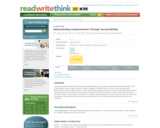
Students demonstrate comprehension by responding to open-ended questions based on the Newbery Honor book "Mr. Popper's Penguins", and then draw from the text and their personal experiences to create journals.
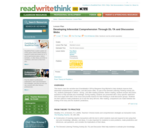
Students will love unwrapping this lesson about before, during, and after reading activities based on Margaree King MitchellŐs book, "GrandaddyŐs Gift".
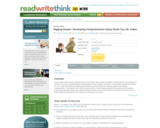
A read-aloud of Patricia PolaccoŐs "Thank You, Mr. Falker" helps promote deeper comprehension through questioning to achieve personal connections and discussions of character and theme.

In this video, Andrew Hossack at the Tapestry Charter School in Buffalo, NY, involves his students in using close reading strategies of a complex text to determine the main idea and important details. In this lesson, his complex text is a newspaper article about the Seneca people. CCSS.ELA-Literacy.CCRA.R.10
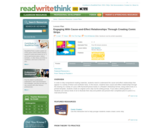
Students demonstrate their knowledge of cause-and-effect relationships by creating original comic strips and sharing their completed work in an oral presentation format.
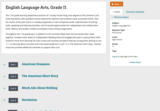
The 11th grade learning experience consists of 7 mostly month-long units aligned to the Common Core State Standards, with available course material for teachers and students easily accessible online. Over the course of the year there is a steady progression in text complexity levels, sophistication of writing tasks, speaking and listening activities, and increased opportunities for independent and collaborative work. Rubrics and student models accompany many writing assignments.Throughout the 11th grade year, in addition to the Common Read texts that the whole class reads together, students each select an Independent Reading book and engage with peers in group Book Talks. Students move from learning the class rituals and routines and genre features of argument writing in Unit 11.1 to learning about narrative and informational genres in Unit 11.2: The American Short Story. Teacher resources provide additional materials to support each unit.

In this 5-day unit, students will explore the topic of cheating. Cheating seems to be ever-present in today’s society. Whether we are talking about athletes being busted for using steroids or students “sharing” answers and plagiarizing on final exams, one thing is clear—there’s a whole lot of cheating going on. In this unit, students will take a look at some contemporary instances of cheating and argue whether under certain situations cheating is not only excusable, but also justifiable.

In this lesson, students will share annotations and discuss the articles “Don’t Alter Models’ Bodies” and “Is Photoshop Destroying America’s Body Image?” Then they will write an argument in which they state their claim, present relevant evidence, and respond to counterarguments.

In this short unit, students will spend three lessons exploring the importance of themes and main ideas in fiction and informational texts. Now would be a good time to have them take an assessment of their reading and writing skills. They'll explore theme through O. Henry's classic short story "The Gift of the Magi" and consider how this piece compares to the main idea in the article "The Proven Power of Giving, Not Getting."

In this lesson, students will consider whether aphorisms are trite, true, or both. They’ll think about the theme of “The Gift of the Magi” and read an informational article on a similar subject.
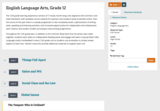
The 12th grade learning experience consists of 7 mostly month-long units aligned to the Common Core State Standards, with available course material for teachers and students easily accessible online. Over the course of the year there is a steady progression in text complexity levels, sophistication of writing tasks, speaking and listening activities, and increased opportunities for independent and collaborative work. Rubrics and student models accompany many writing assignments.Throughout the 12th grade year, in addition to the Common Read texts that the whole class reads together, students each select an Independent Reading book and engage with peers in group Book Talks. Language study is embedded in every 12th grade unit as students use annotation to closely review aspects of each text. Teacher resources provide additional materials to support each unit.

In this short unit, students will spend three lessons exploring some of Abraham Lincoln's speeches. Students will explore Lincoln's themes and consider how they address the issues of his time, and they'll analyze the literary and rhetorical devices he used to express his ideas.
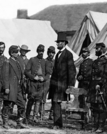
In this lesson, students will continue analyzing Lincoln’s first inaugural address. They’ll read two more of his speeches, including the Gettysburg Address. Then, they’ll analyze his themes and the ways that he used literary and rhetorical devices.

In this 5-day unit, students will explore the topic of love. After reading six poems from writers in the 16th and 17th centuries, they will decide which poet had a better idea than the others about how to express love to a young woman.

Over the next two lessons, students will complete the culminating assessment for this unit.In this lesson, students will read text and answer questions that reflect their reading comprehension. Some questions will ask students to select from a group of answers supplied. Other questions will ask students to construct their own answers and write them in the space provided.
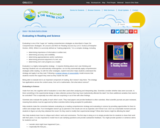
Evaluating has been called one of the six most important reading comprehension strategies. In this article, it is also considered as a strategy for analyzing and interpreting data. This professional development article appears in the free, online magazine Beyond Weather and the Water Cycle, which integrates science education and literacy instruction for K-grade 5 teachers. Each issue examines one of the recognized essential principles of climate literacy and the climate sciences and one or more reading strategies for elementary teachers and their students.
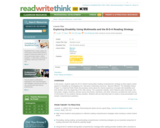
History takes on new dimensions in this interactive multimedia lesson that emphasizes the B-D-A approach to research as students investigate the experiences of people with disabilities since the early 1800s.
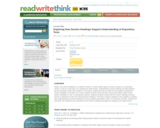
Nonfiction may be dull for some students, but this lesson helps them focus on the main ideas. Through awareness of section headings, students learn to sort and categorize main concepts.